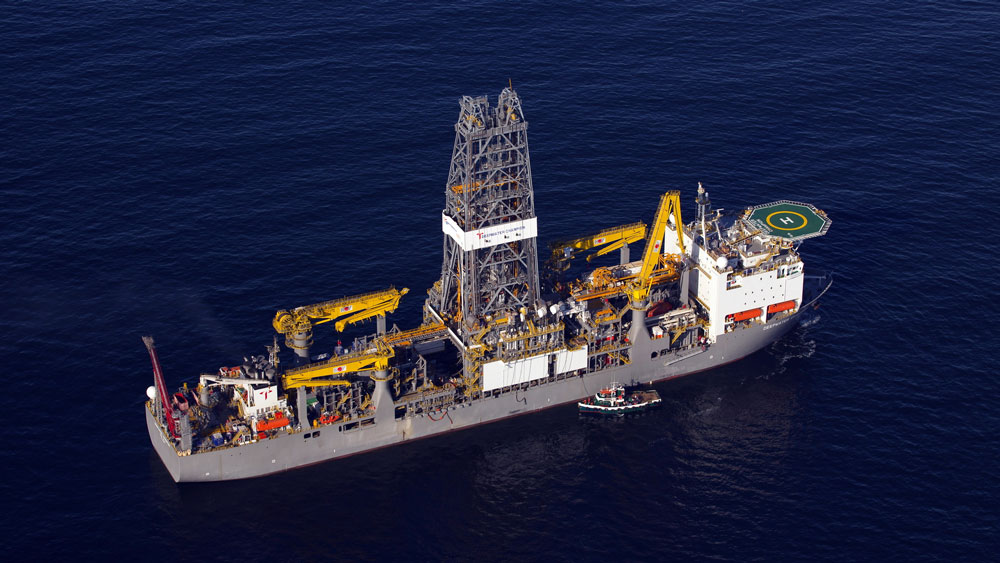ExxonMobil to Exit from Neptun Deep Project
Perspectives and Opinions
The month of December 2019 brought the first official statement of ExxonMobil on the sale of its stake in Neptun Deep, until then the company preferring not to comment the information appeared in the media. However, Romgaz and several companies have received a letter from the consultants hired by Exxon, ScotiaBank, in view of purchasing either the Romanian subsidiary or the stake held by it in Neptun Deep. Romgaz CEO Adrian Volintiru has announced that the main gas producer in Romania was interested in buying a minority stake of 15-20%. Despite the fact that Exxon has sent notifications to the Romanian regulators, as well as to OMV Petrom, informing them of its decision to sell its stake, the new minister of Economy and Energy, Virgil Popescu, claimed he did not know anything about this subject.
Exxon’s decision seems to compromise at least in the short-and medium-term Black Sea gas exploitation, the sale process being complicated. Moreover, it is less likely that any of the major global producers will be interested in Neptun Deep. Romanian government officials have bet everything on a single card: that ExxonMobil would not leave Romania, irrespective of the increase in taxation under the Offshore Law or capping the price under GEO 114, after it has invested USD 700mln in Neptun Deep. But the US giant is the most important oil and gas company in the world, with annual revenues of USD 300bn, a profit in 2018 of USD 21bn and annual investments in exploration of over USD 25bn. In the company’s annual report for 2018, submitted to the US Securities and Exchange Commission, it is shown that exploration costs worth USD 536mln were capitalized at Neptun Deep in the form of assets in the period between 2012, the year of field discovery, and 2016, when the exploration works were completed, this being the most expensive hydrocarbon production project with exploration works completed and ready to be launched of the portfolio of 40 such projects of the US giant ExxonMobil. “We continue to fulfil our role and obligations as operator for the project to advance and continue all steps for obtaining the necessary permits,” company representatives have mentioned.
In turn, OMV CEO Rainer Seele has announced that OMV Petrom would adopt in 2020 a favourable final investment decision in the case of Neptun Deep project if the draft amendment to the Offshore Law were adopted.
PM Ludovic Orban has recently stated that Romgaz would be interested in entering a consortium with OMV Petrom and a third company to develop Neptun Deep, mentioning that Russia’s Lukoil had also requested information about the sale. “If Exxon decides to sell, we want a serious partner, from the area of our partnerships – the European Union, NATO. Of course, we cannot decide in Exxon’s place to whom it should sell its stake, but there are also other offers.”
“I have repeatedly stated publicly that a priority of my term was for Black Sea exploitation to be made in the shortest time possible. This exploitation is also a consolidation of national security, not only economic development. I would want Exxon to continue operations in Romania. If for internal reasons they want to leave, I recommend them to comply with the Romanian legislation used when they entered, i.e. Government Decision for transferring the license. I would also like Romgaz, a company of the Romanian state, to be part of the future consortium that will exploit this block. Black Sea operations are a matter of national security and I recommend that no one puts us to the test with this,” Minister of Economy, Energy and Business Environment Virgil Popescu said.
The sale of Exxon’s stake requires the approval of the Romanian Government and would help the US group get closer to its objective of raising USD 15bn from asset sale by 2021.
Regarding the aforementioned, Razvan Nicolescu – Energy & Resources Industry Leader for Romania within the Consulting practice in Deloitte, claims that “ExxonMobil is difficult to replace, as it is the most experienced organization in the world in the field of deep offshore drilling projects. For this reason, if it stays, it’s a good thing for the Romanian energy sector. In other words, there is no other company more capable than Exxon to implement this project fast, with reduced environmental risks and at the lowest costs. “The reasons of ExxonMobil’s departure are related to the internal policy of the company, as well as to the baffles of some officials and PSD parliamentarians,” he added. In his opinion, “the position of the current Government of Romania – that the departure of the company should take place under the same terms as its arrival – is very correct. The Government says: we want to give our approval on who comes. To keep a correct relation with the state, it is important for both Exxon and the future buyer to take into account this request of the state. My preference on a potential replacement heads to a large US company that can quickly implement the project. It is important for Romania to have economic relations as consistent as possible with the US. It should be avoided that these exploitations fall within the sphere of influence of a country that holds almost a monopoly in terms of gas supplies in the region. Here it’s not about ideology, but the need to ensure energy security by diversification and competition. If major US companies are not interested, at least it should be one from the EU or the UK.”
“The most important for Romania is that these projects are made quickly, enjoy success and the state to collect taxes, direct and indirect, at a fair level,” Razvan Nicolescu concluded.



